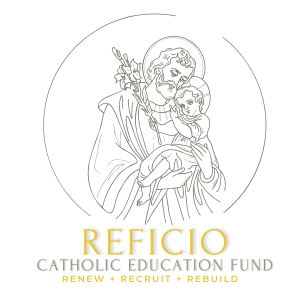Faith, Funding and Federal Policy: What the ECCA Means for Catholic Schools
The passage of the Education Choice for Children Act (ECCA) represents one of the most significant federal opportunities for Catholic education in decades. For diocesan leaders, principals, and pastors dedicated to the mission of forming students in faith and academic excellence, this new provision has the potential to be a game-changer for school enrollment and long-term sustainability.
But like any policy shift, the ECCA comes with both opportunities and responsibilities. Understanding the mechanics of the law—and acting quickly and strategically—will be key to ensuring Catholic schools claim their rightful place in this new education choice landscape.
Understanding ECCA: The Basics Every Diocese Should Know
At its core, the ECCA creates a federal tax credit for individuals who contribute to Scholarship Granting Organizations (SGOs) that fund K-12 scholarships for eligible students. Here’s what you need to know:
- Tax Credit Amount – Individuals can receive a federal tax credit up to $1,700 for qualified contributions to an SGO in their state.
- Eligibility – Scholarships must benefit students from households earning up to 300% of the area median income (AMI).
- SGO Requirements – To participate, SGOs must:
- Be a 501(c)(3) non-profit.
- Direct a minimum of 90% of their revenue toward scholarships.
- Serve 10+ students attending different schools.
- Maintain strict compliance standards, including prohibitions on self-dealing and earmarking scholarships for specific students.
Participation is not automatic, states must decide to join and submit approved SGOs that meet federal criteria. If your state decides to participate, this means federal dollars can now flow to Catholic school families in the form of scholarships—at no cost to dioceses—if a compliant SGO is in place.
Why This Matters for Catholic Schools
Catholic education has always thrived when mission and sustainability work hand-in-hand. Yet, for too long, limited financial access has prevented families from choosing Catholic schools. The ECCA opens new doors by:
- Expanding Affordability – Families at or below 300% of AMI—many of whom are Catholic but cannot currently afford tuition—will gain access to scholarships that make Catholic education attainable.
- Mission-Centered Growth – With more scholarships available, schools can enroll students whose families are committed to Catholic formation, creating growth rooted in shared purpose.
- Promoting Long-Term Stability – A larger and more stable student base creates predictable tuition revenue, helping schools avoid closures and allowing dioceses to plan for growth rather than survival.
The Catholic Mission Connection
Reficio, the only Catholic SGO designed for the ECCA era, was built around the belief that school choice policy should serve both Catholic identity and financial viability. This alignment is critical:
- Faith First, Compliance Always – Catholic schools cannot afford to ignore the regulatory requirements of ECCA. Partnering with a mission-driven, compliant SGO ensures dioceses avoid the administrative burden while staying true to Church teaching.
- Formation, Not Paperwork – A good SGO handles the complexities of compliance and recordkeeping so that Catholic school leaders can stay focused on evangelization and education.
- Mission-Sustaining Resources – When more families can access Catholic education, parishes and dioceses can prioritize faith formation, not fundraising emergencies.
If your diocese or school is ready to explore how ECCA can strengthen enrollment and long-term sustainability, we would love to connect. Reach out to us at outreach@reficio.co to schedule a conversation and learn how we can partner to make Catholic education more accessible for the families you serve. Let’s work together to grow mission-driven, financially stable schools that thrive for generations to come.



